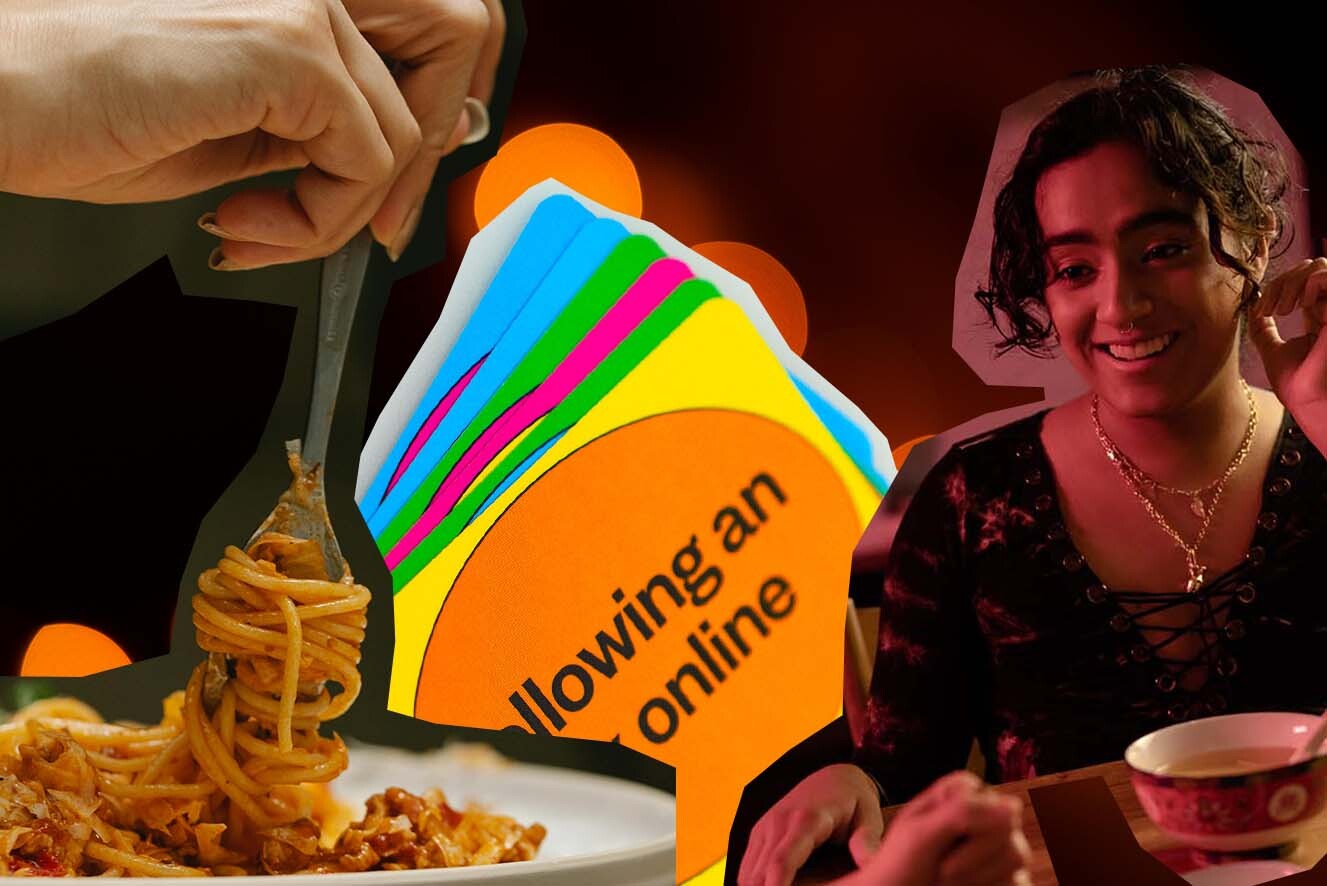We all get it, feeling cared about feels good. It’s natural to want to feel supported and looked after in a relationship.
But sometimes, what looks like them being caring crosses a line, into straight-up control.
And what’s tricky is that control doesn’t always show up as shouting or obvious rules about what you should or shouldn’t do (obvious red flag behaviour).
It can be subtle and sometimes low-key. It can sound like 'I’m just looking out for you' or 'I just love you so much'.
That’s why it can be tricky to recognise.
Here’s how to tell the difference between healthy acts of care vs. signs of controlling behaviour in a relationship.

1. When Check-Ins Become Check-Ups
When it’s okay: Checking in is about support, not surveillance.
That can be like asking if you got home safe after a night out, checking you're feeling okay, or if you agree together to share your location for a certain reason.
When it’s not okay: It’s different when chill check-ins turn into constant checking up.
If someone constantly asks for your location or makes you share it, wants your passwords, or demands updates and gets upset if you don’t respond instantly, that’s not okay.
It’s not care, it’s control.
It can even show up digitally, like spamming messages, blowing up your phone, or leaving you on read to make you feel bad.
In a healthy relationship, you’re free to have your own space without feeling monitored.
2. When Preferences Turn Into Pressure
When it’s okay: Everyone has preferences, you might compliment each other’s style or joke about a favourite outfit.
You might even ask each other for a simple (but honest) opinion on your fit.
It’s casual and respectful, you’re both on the same page.
When it’s not okay: It crosses a line when preferences turn into rules.
If they criticise or police what you wear, tell you what you can post online, or make you feel guilty about how you express yourself, you guessed it; that's not about care. It's control.
In respectful relationships, you should feel confident and supported being yourself.

3. When Jealousy Gets Disguised as 'Love'
When it’s okay: Feeling jealous and insecure sometimes is totally understandable, the thing that matters is how you deal with it.
A healthy relationship means talking about insecurity honestly, owning your feelings, and talking about what’s making you feel uneasy respectfully and without blame.
When it’s not okay: If someone says 'I just love you so much' to excuse checking your phone, getting jealous over your friends, or limiting who you talk to.
It’s not love when they’re dictating your life.
Real care comes with trust, communication, and respecting each other's independence.

4. When Being Together Means Being Cut Off
When it’s okay: Spending time together is great, but so is keeping your own friendships, interests, and time alone.
It’s all about balance.
In a healthy relationship, everybody should feel free to say 'No' if they don’t feel like hanging out, and their space should be respected.
When it’s not okay: If someone expects you to ditch your friends, stop seeing your family, or spend every spare minute with them, it can quickly become isolating.
And if somebody is made to feel guilty for wanting some alone time or time with somebody else, that’s controlling.
Healthy relationships support both connection and independence.

5. When Respect Gets Replaced by 'Rules'
When it’s okay: Setting boundaries is about making sure both people feel safe and respected.
It’s something you agree on together.
They help everybody to feel trust, and make it clear they’re valued in the relationship.
When it’s not okay: If your relationship is full of rules, like who you can see, where you can go, what you can share, that’s not boundaries, it’s control.
Anything that forces another person to do or not do something is controlling.
Ask yourself, 'Does this relationship make me feel free and safe, or trapped and isolated?'
Your answer matters.
Not sure where the line is?
It’s okay to have questions.
Recognising the difference between healthy relationships and controlling behaviour is something you can learn and get better at.
Relationships should feel supportive, respectful, and safe for both people.





